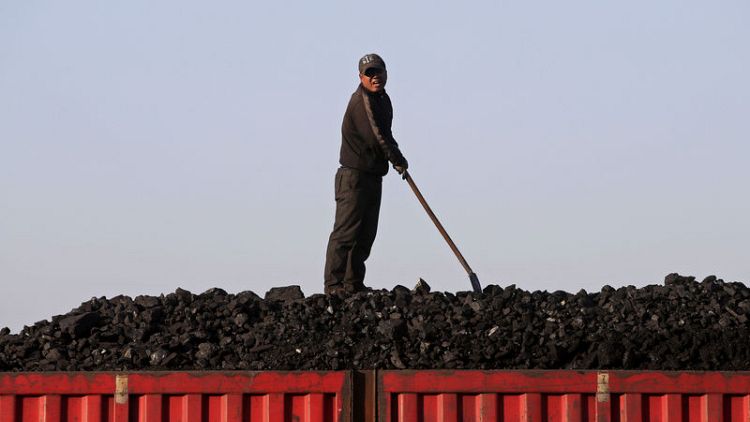SHANGHAI/SINGAPORE (Reuters) - Chinese legislators approved a new law on Monday that will give local governments authority to tax as many as 164 different resources, including fossil fuels, minerals and eventually water, the Ministry of Finance said on Monday.
The National People's Congress, China's parliament, approved the new resource tax law on Monday and it will go into effect in September next year, the ministry said in a briefing.
Officials insisted it will not raise the overall tax burden on local firms.
Major resources such as crude oil or rare earths will still be subject to a fixed tax rate set by the central government, but local authorities will be able to adjust the rates levied on other products, said Xu Guoqiao, a senior inspector with the taxation department at the Ministry of Finance.
The law will enable governments to provide tax relief for depleted, low-grade mines or regions hit by natural disasters. It also allows tax exemptions to be applied to serve policy strategies like the development of coalbed methane, he said.
It will also lay the groundwork for a nationwide water resource tax designed to encourage efficiency and conservation. China began levying a pilot water resource tax in heavily polluted Hebei province in 2016.
Local authorities will be granted powers to levy higher rates of tax in regions where water resources are relatively scarce, but Xu said it will not raise the overall taxes paid.
"It will mainly strengthen the water conservation awareness of taxpayers, prevent the overexploitation of groundwater and force high water-consuming enterprises to save water and improve efficiency," he said.
China's resource tax reforms were first introduced for products like crude oil, natural gas and coal in 2011 and extended to other commodities in 2016.
Chinese firms were previously charged on the basis of how much of a resource they used, but the new tax system is based on prices rather than volume.
Under the new law, Chinese and foreign firms jointly exploring for oil and gas in onshore and offshore oil and gas blocks will be continue to pay only royalties for contracts that were signed before Nov. 1, 2011, the official China News Service reported on Monday.
But they will have to start paying the resource tax once the contract expires, the report said.
(Reporting by David Stanway in SHANGHAI and Chen Aizhu in SINGAPORE; editing by Christian Schmollinger)
